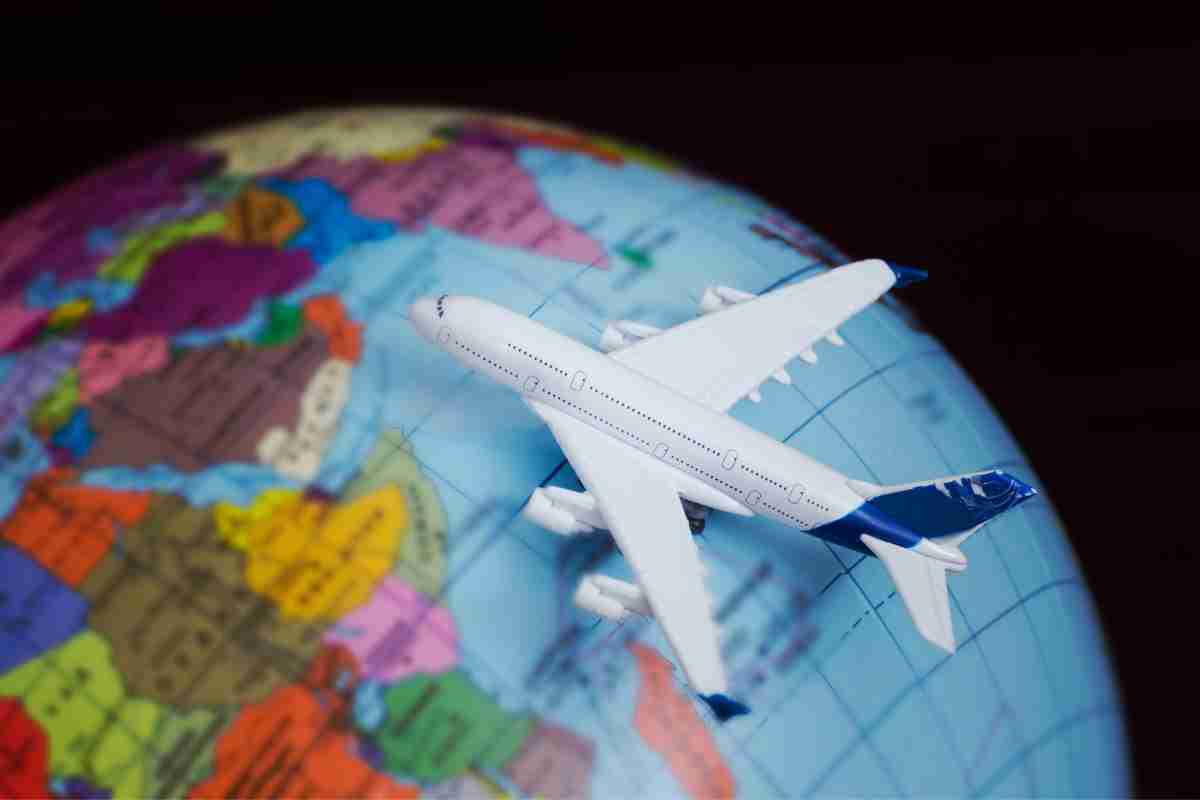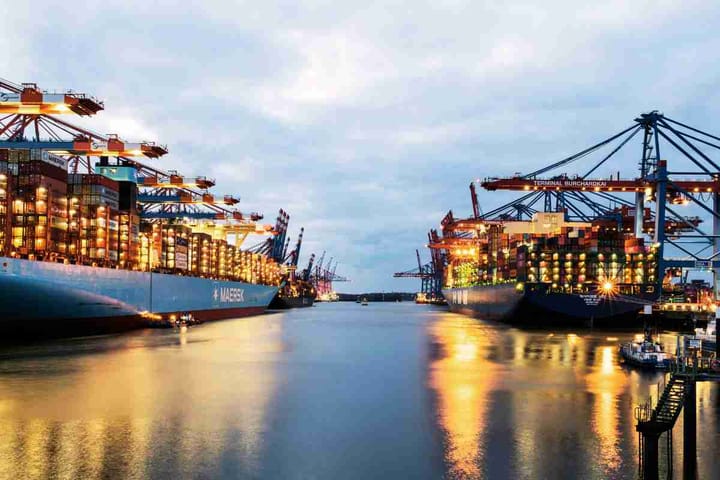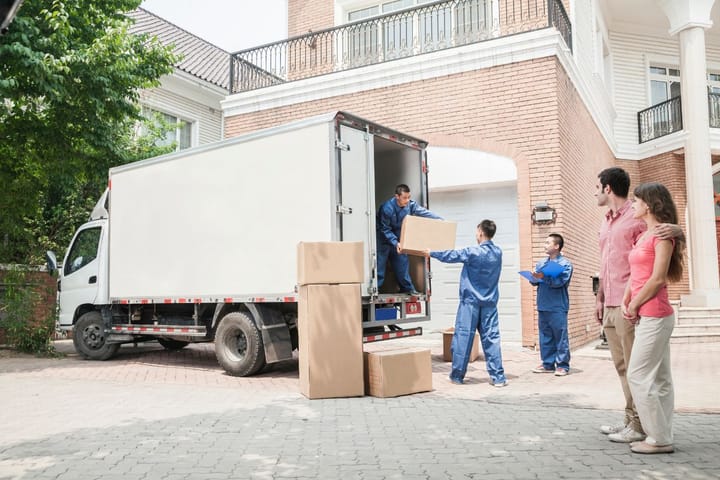How To Relocate Overseas: Key Considerations And Steps
Considering a move abroad? Our guide eases the process with essential steps and tips for a smooth transition. Discover new cultures and opportunities! Read more

Are you thinking of starting a new chapter in a far-off land? Moving overseas is an exciting adventure that opens the door to new cultures, experiences, and opportunities. But it can also feel overwhelming. The thought of packing up your life and navigating the complexities of an international move might have you questioning where to begin.
Luckily, this guide will help make the process bearable. It discusses the essential considerations and steps to make your transition as smooth as possible. Read on!
Choose the Right International Movers
Choosing the right international movers is a crucial consideration when relocating overseas. The right moving company can ease your transition, while a poor choice may lead to unnecessary stress and complications.
When selecting an international moving service, prioritize experience and reputation. Look for moving companies with a proven track record in handling international moves and positive customer reviews.
Ensure they offer comprehensive services, including packing, transportation, customs clearance, and delivery at your destination. Verify their insurance coverage and consider additional protection for valuable items.
Also, compare detailed quotes from multiple providers, ensuring all potential fees are transparent. Selecting the best relocation experts is crucial when moving Internationally. Make sure you choose a company familiar with your destination country, as they'll understand local customs regulations and potential challenges.
Research Your Destination
Before you make any big decisions, it's crucial to research your potential new home. Here's what you need to focus on:
Cultural Norms and Lifestyle
Focus on understanding the local culture. Observe how people interact, including their greetings, body language, and social norms. You might discover unique festivals or daily rituals that shape community life.
Each location has its own distinct rhythm and unwritten rules. The more you tune into these subtle cues, the quicker you'll feel at ease and build meaningful connections in your new environment.
Cost of Living
Before you move, examine the cost of living in your new home. Start with the basics: housing, food, and transportation. How much will the rent or mortgage cost? What about groceries and expenses?
Don't forget to factor in healthcare costs and transportation. You might find some pleasant surprises. Perhaps public transport is cheaper, or fresh produce costs less than you're used to. On the other hand, imported goods you love could be pricer.
Comparing these costs to your current expenses will help you avoid financial shocks and plan your budget more effectively. This knowledge will also help you live comfortably within your means and even save for exploring your new surroundings.
Climate and Geography
When moving overseas, your new home's climate and landscape will shape your daily life, so research the weather patterns before you move. Will you need warm coats for snowy winters or light, breathable clothes for tropical heat?
Beyond clothing, consider how geography might affect you. Living in a mountain town requires different preparations than a coastal city. Understanding your environment helps you adapt quickly and safely.
Expat Community
Connecting with other expats can ease your transition to a new country. Seek out established foreign communities in your area. These groups often offer valuable support and insights.
You'll find fellow newcomers who understand your challenges firsthand. They can share tips on navigating local bureaucracy, finding familiar products, or dealing with homesickness.
But don't rely solely on this network. Balance your interactions with the locals as well. While expat friends provide comfort, integrating with the local community enriches your experience.
Safety
When moving to a new country, prioritize your safety. Research crime rates and security issues in your chosen area. This will help you make informed decisions about where to live and how to stay safe.
If possible, talk to locals or long-term residents. They often know which areas to avoid, especially after dark. Learn about common scams or safety concerns targeting newcomers.
Additionally, consider practical safety measures. Do you need to upgrade your home security? Are there safe transportation options for late nights? Knowing these details helps you navigate your new environment confidently.
Researching these key aspects of your destination country will ensure you're well-prepared for the challenges and opportunities ahead. It'll also empower you to make informed decisions, adapt more quickly, and fully embrace your new life abroad.
Understand Visa and Residency Requirements
Navigating visa and residency requirements is crucial for your international move. Each country has unique rules, so start this process early.
First, identify the right visa for your situation. Are you moving abroad for work, study, or retirement? Each category has specific requirements.
Next, gather important documents. You'll likely need your passport, birth certificate, and proof of funds. Some countries might ask for police clearance or health records.
Regardless of the paperwork needed, don't wait until the last minute, as acquiring them might take time. Submit your application well in advance. Visa processing could take weeks or even months, so plan ahead to avoid stress or delays in your move.
If you're thinking long-term, look into pathways for permanent residency or citizenship. These options often have their own set of requirements and timelines.
Note that immigration laws can change. If you're unsure about any steps, consider seeking help from an immigration expert. With careful planning and patience, you'll navigate this process successfully and start your new adventure on the right foot.
Plan for Housing and Accommodation

Planning for housing and accommodation is another crucial factor to consider when moving internationally. First, you must decide between renting or buying a new home. Renting might be the best option at first, as it gives you time to get to know your new city before committing to it for the long term.
Next, explore different neighborhoods. Look for areas that match your lifestyle and budget, considering factors such as commute times, nearby amenities, and safety.
Make sure you understand the local rental or buying process. It may differ from what you're used to. For example, some countries require hefty security deposits or have strict tenant laws.
Consider booking temporary accommodation for your first few weeks. This gives you time to house-hunt in person and avoid rushed decisions. Short-term rentals or extended-stay hotels can be good options.
Finally, factor in all housing costs. Beyond rent or mortgage, consider utilities, maintenance fees, and local taxes. These can vary widely between countries and even neighborhoods.
Consider Employment and Career
If you're moving abroad without a job, start your job search early. Begin networking months before your move. Join online professional groups in your new country and attend virtual industry events. These connections can lead to job opportunities or valuable insights into the local job market.
Research the work culture in your new country. Business etiquette varies widely. In some places, punctuality is paramount. In others, relationship-building takes precedence. Knowing such nuances will help you fit in smoothly.
If you're planning to work remotely, talk to your employer early enough. Discuss time zone differences and how they'll affect your work schedule. Ensure you'll have reliable internet and necessary tech tools.
Keep in mind that adapting to a new work environment takes time. Be patient with yourself and open to learning. Your international experience can be an asset in your career growth.
Arrange Your Finances
Managing your money across borders can be tricky. Consider taking these steps to ensure financial stability:
Open an International Bank Account
Before relocating overseas, set up an international bank account. It's crucial for managing your money abroad. You'll save on transfer fees and easily access your funds. Plus, you won't have to stress about currency conversions.
Many banks offer online services, making it simple to check your balance or pay bills from anywhere. This small step can make your financial life much smoother in your new home.
Inform Your Current Bank
Give your current bank a heads-up about your big move. It's a quick call that can save you a lot of trouble later. They'll update your contact info and help you avoid frozen accounts or declined cards.
Ask about the international services they offer. You might discover helpful perks for expats. This simple step keeps your finances running while you focus on settling into your new home.
Research Tax Implications
Get a grip on your tax situation before relocating overseas. It's not the most exciting task, but it's crucial. You might still owe taxes back home, even while living abroad. Meanwhile, your new country will have its own rules.
Look into tax treaties between your new and home country: it can help prevent double taxation. Consider chatting with a tax pro who knows international rules. Understanding the tax implications of your overseas move can save you money and stress come tax season.
Consider Currency Exchange
Take charge of your money moves across borders. Shop around for the best currency exchange options. Banks aren't always the cheapest route. Online services often offer better rates and lower fees.
Monitor the exchange rates. Set up alerts for favorable rates and consider opening a multi-currency account for flexibility. Smart currency management keeps more money in your pocket during your transition.
Build an Emergency Fund
Start building your safety net now. Aim to save enough to cover three to six months of expenses. This cushion will give you peace of mind in your new home.
International moving brings unexpected costs, from surprise fees to potential job gaps. Your emergency fund acts as a financial lifeline during these times. With this buffer, you'll face your new adventure with confidence, ready for whatever comes your way.
The bottom line? Taking these financial steps will set a solid foundation for your overseas life. You'll be ready to handle the economic challenges and opportunities that come with international living.
Conclusion
Relocating overseas is an exhilarating yet complex journey. Your research and preparation are the compass guiding you through this life-changing journey. As you've discovered, moving overseas involves much more than packing boxes and booking flights. It's about embracing a new culture, navigating unfamiliar systems, and reimagining your daily life. Remember, even the most meticulous plans may face unexpected winds, so embrace this new chapter with confidence, flexibility, and an open mind.




Comments ()